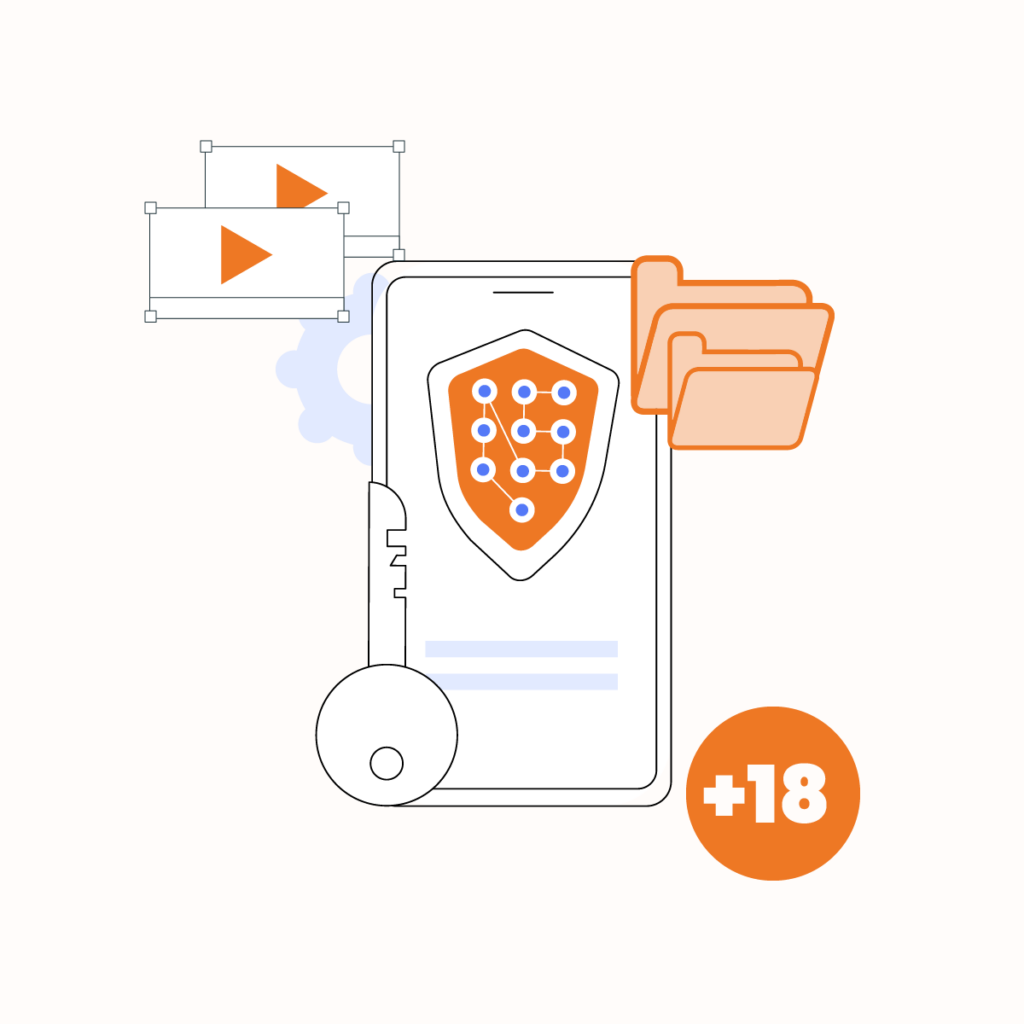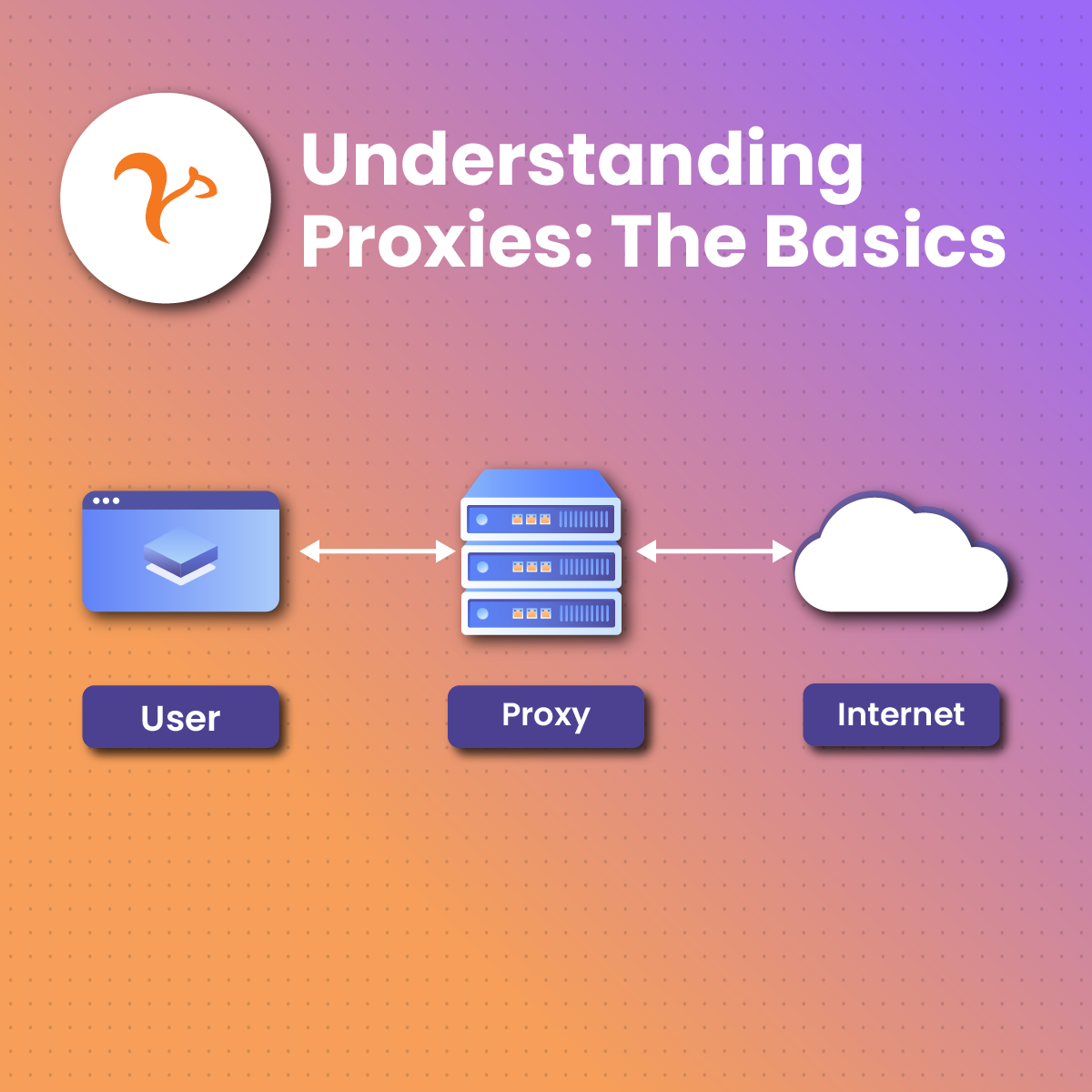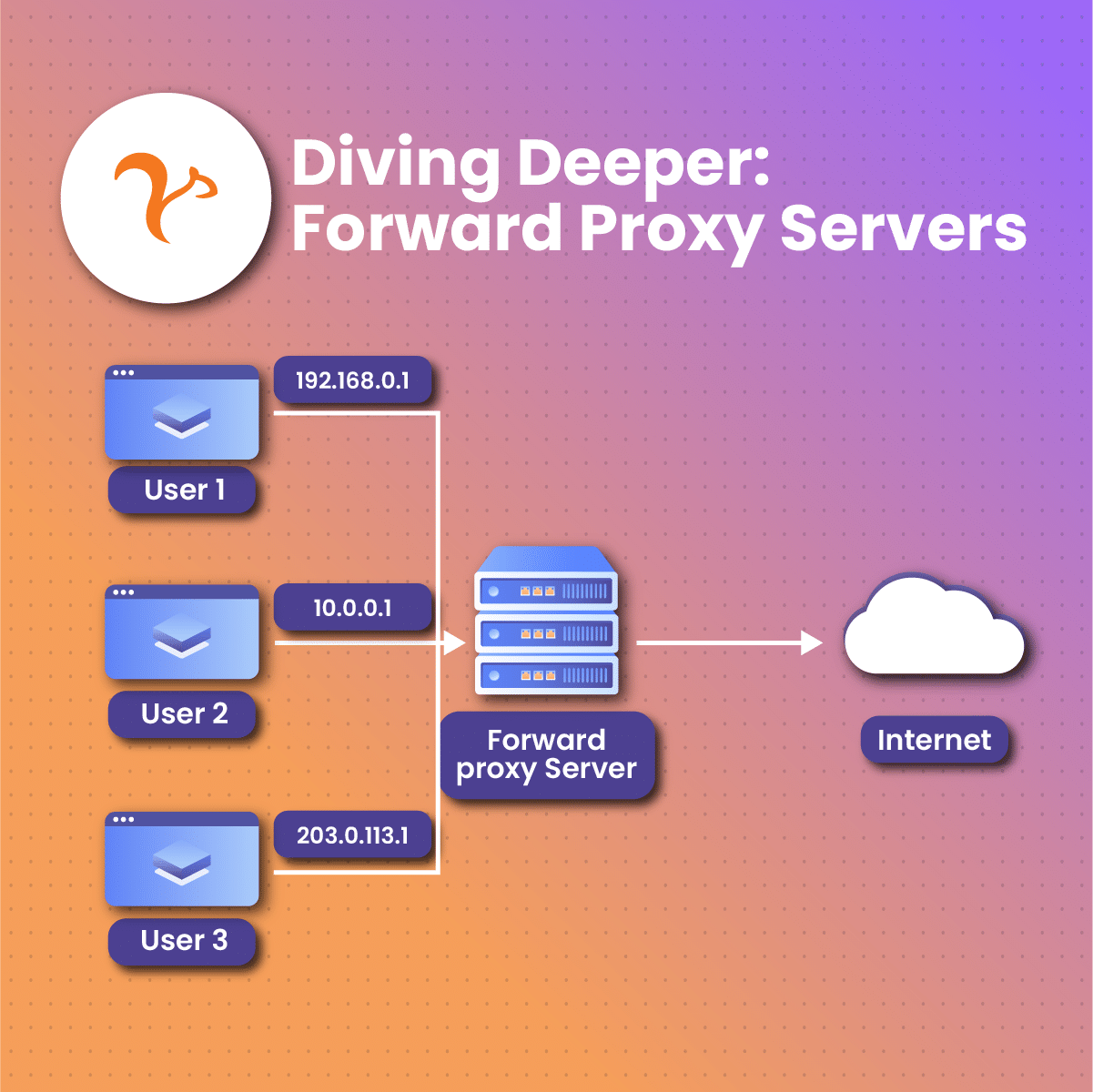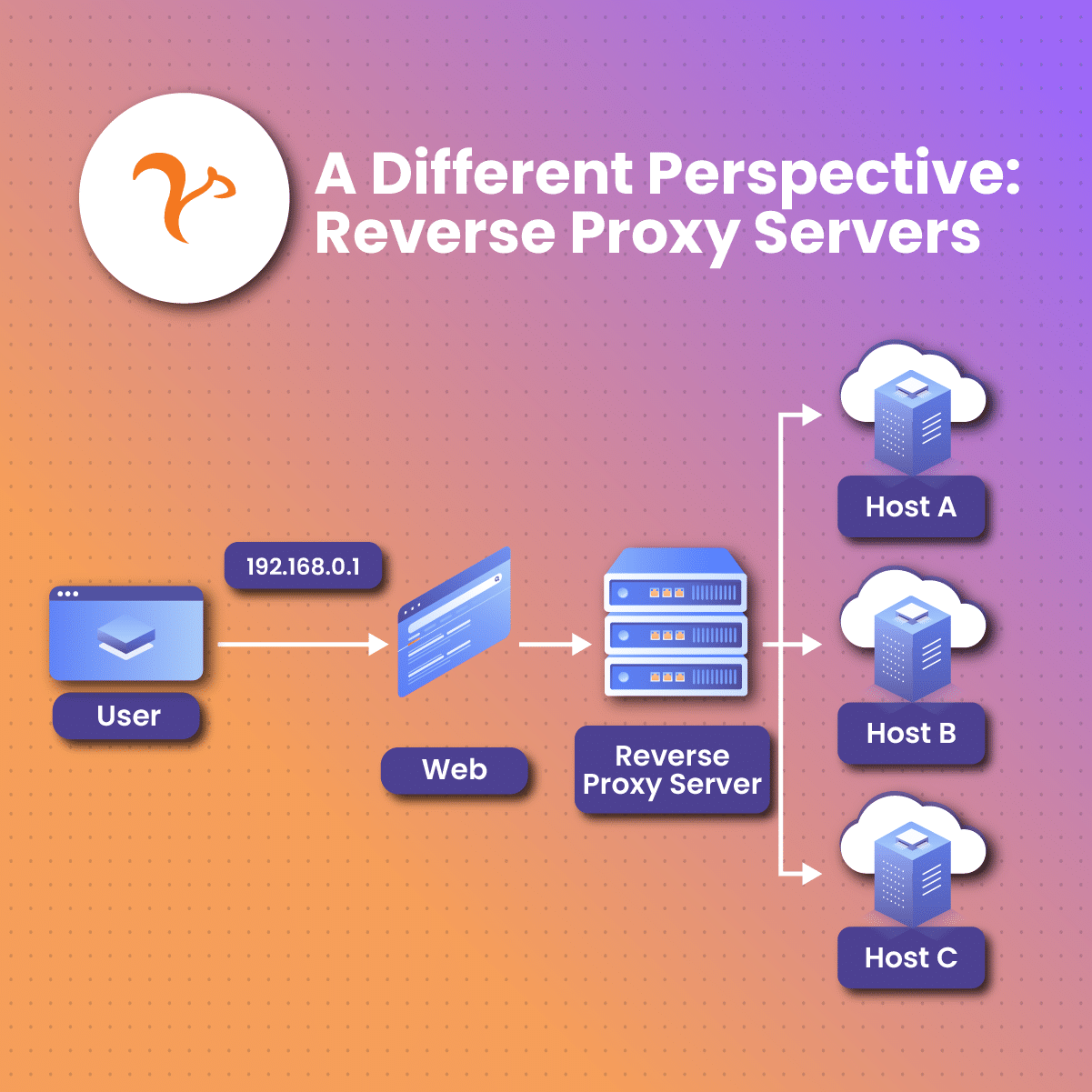What Are Proxy Settings? Meaning, Definition, Uses, and More!
In today’s digital landscape, understanding proxy settings is essential for enhancing online privacy, security, and accessibility. Proxy settings configure how your device connects to the internet through an intermediary server, influencing your browsing experience and data protection. Proper configuration of these settings enables efficient use of proxy servers, ensuring secure and anonymous internet access.
Many people use the internet without knowing a lot about what goes on behind the scenes whenever they log in from their computer or mobile device. Proxy settings, meaning, definition, and uses, are all foreign terms to many internet users.
However, considering how dangerous the internet can be, it helps to know as much as you can about proxy settings, meaning you have to take the time to do some research about them. If that is the case, you have landed on the right page.
As a leading provider of fast, reliable, and scalable proxy solutions, NetNut has all the information you need to get started on setting up your proxy servers for your home or business. You can visit the website right now, and see which products and services can boost your web surfing experience.
What Is A Proxy Server?
A proxy server acts as an intermediary between a user’s device and the internet. When a user requests a web page, the request is first sent to the proxy server, which then forwards it to the desired website. The website’s response is sent back to the proxy server and then relayed to the user. This process masks the user’s IP address, enhancing privacy and security by hiding their real identity and location.
Whether it is being used in a residential or commercial setting, a proxy is used to retrieve important data from the internet on behalf of the user.
There are many reasons why you would rather have a proxy between you and the internet, some of which will be discussed later on in the article. Proxy servers have different uses, depending on their configuration and your needs as the user. This is why proxy settings are important.
Any device that is connected to the internet also brings with it some added risks to the user. The same is true with proxy settings, meaning you have to know exactly what you are doing whenever you decide to use these on your device.
Proxy Settings Definition
Proxy settings are configurations that determine how your device communicates with the internet via a proxy server. A proxy server acts as an intermediary, routing your internet requests through its own network before reaching the desired website or service. This process masks your IP address, enhances privacy, and can bypass network restrictions. Configuring proxy settings involves specifying the proxy server’s IP address, port number, and any necessary authentication details. Properly set proxy settings ensure that your internet traffic is directed through the proxy server, providing benefits such as improved security, access to geo-restricted content, and controlled internet usage in organizational environments.
What Are Network Proxy Settings?
Proxy settings are configurations in a web browser or application that determine how internet traffic is routed through a proxy server. These settings specify the IP address and port number of the proxy server and dictate when and how internet requests should be sent through the proxy. Adjusting proxy settings allows users to control their online privacy, access restricted content, and improve browsing performance by selecting the most appropriate proxy server.
What you use your proxy server for depends on the proxy settings, meaning they have to be carefully set up if you want your web browsing to go on without a hitch.
Network proxy settings allow you to connect to the internet and activate the service or access any essential products that you may need. These settings let you enter automatic commands that will dictate how your device or the specific program you are using will access the internet.
The visibility of your IP address is determined by your network proxy settings, meaning you have to know when to turn them on or off. In most cases, if you are doing some sensitive work online, and you wish to remain anonymous or hidden, you can turn on your proxy settings to hide or alter your IP address.
However, you must know that your browsing experience may be affected by changing your proxy settings, meaning you may end up having slower internet speeds because of rerouting your IP.
Mobile Proxy Server
A mobile proxy server is simply proxy settings that are used on a device that connects to the internet through mobile networks, such as 3G, 4G, or 5G. The most common examples are tablets and smartphones.
Considering how the world is moving more and more toward the use of mobile devices over desktop computers when accessing the internet, knowing about mobile proxy servers is vital. You can get a lot more information and access to some great mobile proxies at NetNut.
However, even desktop users can use mobile proxies if they want to appear as if they are using a mobile device. This is important when dealing with web server requests that may only allow access to mobile devices. Mobile proxies can also be used in app and ad testing, as well as other product development activities.
What Is An iPhone Proxy?
An iPhone proxy is a configuration that allows your internet traffic to be routed through a designated server, providing increased privacy, security, and access to restricted content. To set up a proxy on an iPhone:
- Open Settings: Tap on the “Settings” app on your home screen.
- Select Wi-Fi: Tap on “Wi-Fi” to view available networks.
- Choose Your Network: Tap the information icon (ℹ️) next to your connected Wi-Fi network.
- Configure Proxy: Scroll down to the “HTTP Proxy” section, which is set to “Off” by default.
- Set Up Proxy: Choose “Manual” to enter the proxy details manually:
- Server: Enter the proxy server’s IP address.
- Port: Enter the proxy server’s port number.
- Authentication: If required, enable authentication and input your username and password.
- Save Settings: Exit settings; your iPhone will now route internet traffic through the specified proxy.
Keep in mind that this configuration is network-specific, so you’ll need to repeat the setup for each Wi-Fi network you connect to.
What Is An Android Proxy?
An Android proxy is a setup that enables your internet traffic to pass through a proxy server, offering enhanced privacy, security, and the ability to bypass geo-restrictions. To configure a proxy on Android:
- Open Settings: Tap on the “Settings” app.
- Network & Internet: Select “Network & Internet” or “Connections,” depending on your device.
- Wi-Fi: Tap on “Wi-Fi” to view available networks.
- Modify Network: Press and hold your connected Wi-Fi network, then select “Modify network” or tap the gear icon next to it.
- Advanced Options: Scroll down and tap on “Advanced” to expand the settings.
- Set Up Proxy: Under “Proxy,” select “Manual” to enter the proxy details:
- Proxy Hostname: Enter the proxy server’s IP address or hostname.
- Proxy Port: Enter the proxy server’s port number.
- Bypass Proxy: Specify any addresses that should bypass the proxy, if necessary.
- Save Settings: Save the settings; your Android device will now use the specified proxy for that Wi-Fi network.
Remember that proxy settings are configured per Wi-Fi network, so you’ll need to repeat the setup for each network
How a Proxy Works and How to Get One
When you alter the proxy settings on your device, think of it as adding a middleman who stands between you and the internet. Any requests you make will first go through the proxy server, which is the same process for any results that you will receive. This process is usually the same regardless of what you are using the proxy servers for.
If you choose the more advanced types of proxy servers, they will be able to encrypt all your web traffic, which will hide your IP address from the internet service provider. The only downside is that whoever is running the proxy server might be able to access your device and its data without you realizing it.
Proxy setting can be used to simply alter the IP address rather than hide it from view. At times when you want to remain anonymous, or you want a website to think that you are accessing it from a certain location, this is a great tool to have.
A different way of using proxy servers would be as a way to block unwanted websites from being accessed over your network. If you are dealing with a residential network, for example, and you do not want your children accessing harmful websites, this is how you can guard against that.
To get a proxy server, you can choose between hardware and software solutions. If you choose hardware, you will have to buy a device that will sit between your device network and the internet. Software proxies can be downloaded and installed from the internet. You can take a look at some of the proxy servers available at NetNut, and choose one that seems most suited to your needs.
Five Main Benefits of a Proxy Server
Downloading and installing a proxy server, or buying the hardware version and attaching it seems like a lot of work if you do not know the benefits of having this feature. Consider the following five main benefits of using a proxy server:
Improved Security
One thing you cannot afford to compromise when using the internet is security. If you allow unauthorized people or software to access your network, it could have very serious consequences. As such, an organization or residence can use reverse or transparent proxies to improve their security.
Access to Location-based Content
Some websites will only allow access to devices that are located in certain areas or jurisdictions. If you are traveling, for example, you might suddenly find that you are no longer able to access important information that is reserved for residents of the US only. In such cases, you can use a US residential proxy to allow you unlimited access no matter where you go.
Web Acceleration
If you are having problems with internet speed while browsing, a good proxy server can provide the ultimate solution by conserving bandwidth or speeding up data transfer. Of course, the opposite may be true, and you may end up with slower internet once you install the proxy settings, meaning you have to choose your proxy server carefully.
A great option is to use reverse proxies, which will spread out the requests made by the user evenly across different servers. This will help keep the internet speed up even when many requests are launched at the same time.
Better Online Privacy
If you are browsing the internet and want to remain anonymous, you can use a proxy server to achieve better online privacy. You can do this while you are using social media, watching videos, or doing some online shopping.
By using a proxy server to hide or alter your IP address, you can browse the internet freely, without having to worry about being bombarded by ads from various websites. A reliable proxy server will make your IP address impossible to track.
More Control Over Internet Usage
When your internet network is being used by many people, which is the common scenario at work, you may want to prevent your employees from abusing the service by accessing unwanted web content.
Using your proxy server, you can select and block whichever websites or type of content that you feel goes against your company values and principles. You could even use your proxy server to block any social media sites that you feel may be wasting a lot of time during work hours.
Risks Associated With Using a Proxy Server
As useful as installing proxy settings onto your device is, it also comes with its fair share of risks. This is especially true if you do not take the time to research and buy the right proxy services and products from a reliable supplier. Before installing your proxy settings, consider the following risks:
Data Logging
When you are using a proxy server to hide your IP address, for example, you need to know that the provider will store your IP and other web request data in an encrypted format. As long as the provider is a reliable one, this should not be a problem. However, there are some proxy service providers who may sell your data to a third party, which may leave you exposed to data breaches.
Lack of Encryption
If a proxy server is not encrypted, it will be left vulnerable to attack from hackers or other types of cybercriminals. A lack of proper encryption can easily lead to a loss of sensitive data, which may be used for all kinds of unlawful activities. Be sure to do your research properly, and read the terms and conditions in full before giving a proxy server access to your network.
Limited Privacy
Considering that many users install a proxy server to improve their online privacy, they do not realize that some servers do not offer privacy that extends beyond user requests. This means that while you are browsing the internet, you have no idea who might be tracking your internet activity, which will result in you receiving unwanted ads on your device.
Some proxies also run open ports, which are vulnerable to attacks from external viruses or malicious software. The more open ports you have on your network, the greater the security risks you are exposed to.
Unreliable Speed
Another paradox when it comes to proxy servers is that you can use them to improve your browsing experience and end up with inconsistent network speed. This is especially true when dealing with free proxy servers, as they are often vulnerable to network overload.
Should Proxy Settings Be On or Off?
Deciding whether to turn proxy settings on or off depends on your specific use case and requirements. If you need to enhance your online privacy, access geo-restricted content, or mask your IP address for anonymity, turning proxy settings on is advantageous. Proxies can also improve security by protecting against malicious websites and hackers. On the other hand, keeping proxy settings off is advisable if you experience slower internet speeds or do not need additional privacy measures. Disabling proxy settings may provide a more straightforward browsing experience with faster connection speeds.
For business environments, proxies are often turned on to monitor internet usage, control access to specific websites, and safeguard against potential threats. In contrast, for personal use, enabling or disabling proxies depends on the user’s need for privacy and security. It is also essential to consider the type of proxy being used (e.g., HTTP, HTTPS, or SOCKS) and whether it fits the intended purpose. Ultimately, understanding your network requirements and security concerns will guide the best decision on configuring your proxy settings.
How Do I Check My Proxy Settings?
Checking your proxy settings is a straightforward process and varies depending on the device and browser you are using. For Windows users, you can go to the Control Panel, select “Network and Internet,” and then click on “Internet Options.” Under the “Connections” tab, click on “LAN settings” to view your proxy configurations. For Mac users, go to “System Preferences,” click on “Network,” select your active network connection, and then click on “Advanced” followed by the “Proxies” tab to view the settings.
In most web browsers like Google Chrome or Firefox, proxy settings can be checked by accessing the browser’s settings menu. For example, in Chrome, go to “Settings,” click on “Advanced,” and then “System.” Here, you will find “Open your computer’s proxy settings,” which will guide you to the system’s network settings where you can see if a proxy is enabled and its configuration details. It’s crucial to regularly check these settings to ensure that your proxy is configured correctly according to your needs, whether for privacy, accessing restricted content, or other purposes.
Six Types of Proxy Servers You Need to Know
There are many options you can choose when installing proxy settings, meaning you need to have a clear understanding of what you want your proxies to achieve. These proxy servers are often categorized based on accessibility, IPs, service providers, applications, anonymity, and traffic flow.
To help you make the right decision, here are six types of proxy servers you need to know:
1. Forward Proxy Server
The most common type of proxy server is a forward proxy server, which is also known simply as a proxy. It works by passing information from users to the internet, and vice versa, through a firewall.
Depending on the specific proxy setting that you will be using, a forward proxy server will either allow or deny access to the website in question. If the website meets all the requirements, any communication between the site and the user will be done through the firewall as an added security measure.
A forward proxy server is the clearest example of how a proxy server acts as the middleman between the user and the internet. No information will be shared between the two parties that do not comply with the proxy settings, meaning the user remains protected while web surfing.
2. Reverse Proxy Server
A reverse proxy server is used when the user is more worried about the information that can be accessed from the internet, rather than the data that may be leaked out. Using this server, you can monitor all the web traffic in your network, and block any sites that you feel are a violation of your policies, or are counter-productive to your organizational goals.
3. Protocol Proxy Servers
Protocol proxy servers, for example, HTTP proxy servers, are configured by the browser or within the website’s interface, rather than by the user. When using an HTTP proxy server, you will be working with website content only, and not any other data types. The following are some common examples of protocol proxy servers:
- HTTP proxy server
- Common Gateway Interface (CGI) proxy server
- DNS proxy server
- Smart DNS proxy
- Dynamic Host Configuration Protocol (DHCP) proxy server
- File Transfer Protocol (FTP) proxy server
- Simple Mail Transfer Protocol (SMTP) proxy server
- Session Initiation Protocol (SIP) proxy server
- Sockets Secure (SOCKS) proxy server
4. Anonymous Proxy Servers
If you want to remain anonymous while surfing the web, an anonymous proxy server could be the solution. Depending on how “hidden” you want your IP address, location, and identity to be, you can choose between Level 1 or Level 2 anonymity proxies.
With the Level 1 anonymity proxy server, also called a high anonymity proxy, you will have the highest level of security, with your IP address concealed and routinely changed while you are online. Level 2 anonymity proxies will simply distort the user’s IP address when they visit a particular website.
5. IP Location/Source Proxy Servers
IP location or source proxy servers can be either data center proxies, residential proxies, or mobile proxy servers. If you are looking for a proxy server that is not connected to any Internet Services Provider (ISP), you need to go for a data center proxy.
Users who want a real IP address from a residential location to help give them anonymity can use residential proxies, although these will be affiliated with an ISP. When browsing over a mobile network, or if you want to give the impression that you are browsing using a mobile device, you can use mobile proxies.
6. Access Proxy Servers
With access proxy servers, you have a choice between a public or private proxy, depending on your needs. A public proxy is available for free, while a private allows you access to exclusive IP addresses for a fee.
Thinking of Setting up a Proxy Server? NetNut Can Help
If you are looking for an improved and more secure internet browsing experience, you need to consider looking at your proxy settings, meaning it might be time to visit NetNut and see what the company has to offer.
FAQs About Proxy Settings & Proxy Servers
Are Proxy Servers Safe to Use?
Yes, proxy servers are safe to use as long as you get your proxy from a reliable provider. The level of safety will also depend on the type of proxy you choose and the proxy settings you apply.
Is a VPN the Same As a Proxy Server?
VPNs are not the same as proxy servers. With a VPN, all internet traffic is routed through an encrypted tunnel.
Does a Proxy Hide Your IP Address?
Whether or not a proxy will hide your IP address depends on the type of proxy you choose, and what you are using it for. It is not always the case that whenever you use a proxy your IP address is automatically hidden. Some transparent proxies will perform other functions while leaving your IP address visible.








